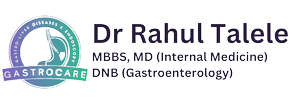Advanced Endoscopic Procedures

What is Advanced Endoscopic Procedures?
Symptoms:
The symptoms of advanced endoscopic procedures can vary depending on the type of procedure performed, the location of the body where the procedure was performed, and the patient’s overall health. However, common symptoms that patients may experience after an advanced endoscopic procedure include:
Soreness or discomfort in the area where the endoscope was inserted.
- Mild bleeding or bruising at the site where the endoscope was inserted.
- Nausea or vomiting.
- Abdominal pain or cramping.
- Difficulty swallowing.
- Changes in bowel movements, such as diarrhea or constipation.
- Fever or chills.
- Chest pain or shortness of breath.
- Worsening of pre-existing medical conditions.
It is important to contact your healthcare provider if you experience any of these symptoms after an advanced endoscopic procedure. Your doctor will be able to assess the severity of your symptoms and provide appropriate treatment.
Precautions:
Advanced endoscopic procedures are minimally invasive diagnostic and therapeutic procedures that are performed to visualize and treat abnormalities in various parts of the body, such as the digestive tract, respiratory system, and urinary tract. While these procedures are generally safe, they do carry some risks. Here are some precautions that should be taken:
- Patient Selection: Advanced endoscopic procedures should only be performed on patients who are deemed suitable for the procedure based on their medical history, physical examination, and laboratory tests. Patients who have bleeding disorders, severe co-morbidities, or other medical conditions that increase the risk of complications should be carefully evaluated before undergoing any procedure.
- Adequate Training: The endoscopist performing the procedure should have adequate training and experience to minimize the risk of complications. They should have completed a recognized training program in advanced endoscopy and should be regularly updated on new techniques and technologies.
- Pre-Procedure Preparation: The patient should be thoroughly prepared before the procedure. This includes fasting for a certain period, bowel preparation, and medication management, if necessary. The patient should also be informed about the procedure, its risks, and the expected outcomes.
- Equipment and Facility: The equipment used in advanced endoscopic procedures should be regularly maintained and inspected to ensure that it is functioning properly. The facility should have adequate resources to manage any complications that may arise during the procedure.
- Infection Control: Infection control measures should be strictly followed to minimize the risk of infection. This includes proper hand hygiene, disinfection of equipment and endoscopes, and appropriate use of personal protective equipment.
- Monitoring and Post-Procedure Care: The patient should be closely monitored during and after the procedure for any complications. They should also receive appropriate post-procedure care and be given clear instructions on what to do if they experience any adverse effects or symptoms.
In summary, advanced endoscopic procedures are generally safe and effective when performed by experienced and well-trained practitioners, with careful patient selection, appropriate pre-procedure preparation, infection control measures, and proper monitoring and post-procedure care.
